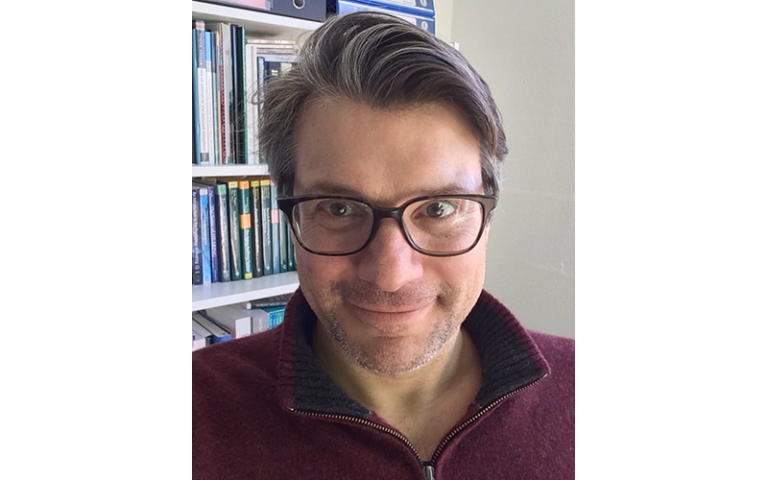Dr Christian Füllgrabe has passed away
18 May 2023
We are very sad to announce that Dr Christian Füllgrabe passed away unexpectedly on Wednesday 3 May after suffering a heart attack.

Dr Füllgrabe joined the UCL Ear Institute in 2022 as Associate Professor in Audiological Sciences. He previously held positions as a Lecturer in Psychology at the School of Sport, Exercise and Health Sciences of Loughborough University, as a Senior Investigator Scientist at the MRC Institute of Hearing Research of the University of Nottingham and as a postdoctoral fellow at the Department of Psychology, University of Cambridge.
After his secondary education in Germany, Christian moved to France to study psychology at the University of Paris Descartes, now Université Paris Cité. He obtained his Master's degree in Experimental Psychology in 2001, and it was there that he met his future PhD thesis supervisor, Christian Lorenzi, with whom he began an intense collaboration on the auditory perception of complex temporal envelopes.
His work combining psychoacoustics, experimental audiology and neuropsychology helped to validate the idea that a central non-linearity distorts the internal representation of temporal envelopes.
He undertook a five-year postdoctoral fellowship at the Department of Psychology, University of Cambridge, under the supervision of Brian C.J. Moore, with whom he developed and refined his knowledge of psychoacoustics and audiology. During this period, which was rich in work on normal hearing and hearing loss, he carried out numerous studies on the effects of training on temporal envelope perception and auditory scene analysis.
Dr Füllgrabe then worked as a Senior Investigator Scientist at the MRC Institute of Hearing Research in Nottingham, UK. From 2010 to 2018, he initiated the research programme that gave him international recognition as a leading expert on the effects of ageing on hearing. The work published during this period, carried out on large cohorts of participants and with rare experimental rigour, demonstrates the effect of age on the auditory processing of temporal cues, and especially the processing of temporal fine structure cues. It is at this point that he started studying the contribution of cognitive abilities such as working memory to the perception of speech in noise for individuals with both normal hearing and impaired hearing.
Professor Jonathan Gale, Director of the UCL Ear Institute, said: “this is a terrible loss for not only for the Ear Institute but for the Auditory science community as a whole. Christian was an excellent colleague, friendly and helpful with a keen critical sense. He was busy preparing new research programmes and collaborations, whilst developing new teaching modules. He will be deeply missed by many here and across the world. Perhaps more importantly he was a loving father to his young daughter, to whom we send our thoughts and deepest sympathy.”
We send our heartfelt condolences to his family and friends.
 Close
Close

